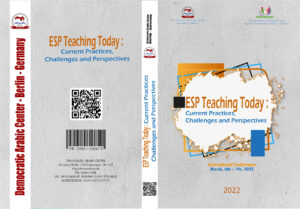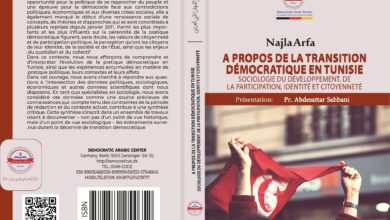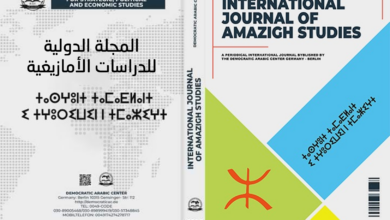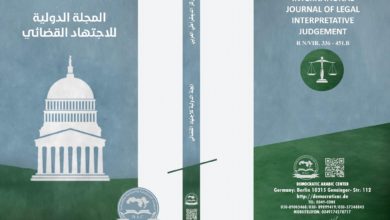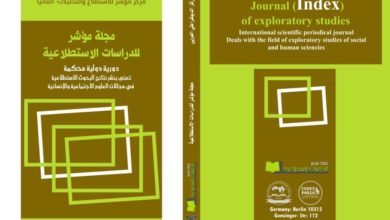ESP Teaching Today : Current Practices, Challenges and Perspectives
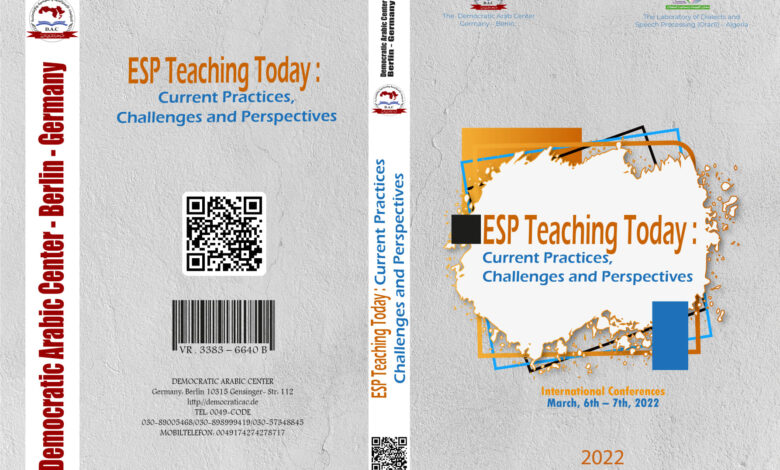
The #Democratic_Arabic_Center based in Germany – Berlin, is pleased to present the work book of the
ESP Teaching Today : Current Practices, Challenges and Perspectives
March, 6th – 7th, 2022
In collaboration with
- The Laboratory of Dialects & Speech Processing (Oran 1) – Algeria
- The National Research Project P.R.F.U: Toward Critical Thinking Based EFL Class : A Must –to- Have Skill for Impacting Social Change (ENS Oran)
- Scientific Research & Studies Center- Tobruk University-Libya
– ” Download version ” pdf
ESP Teaching Today Current Practices, Challenges and Perspectives
First edition “2022” – Book – ESP Teaching Today : Current Practices, Challenges and Perspectives
As any other kind of language teaching, English for Specific Purposes is first and foremost based on the process of learning, a process which nevertheless addresses the needs of certain communities of learners, namely individuals interested in acquiring some professional skills and performing job related practices. Due to its oriented focus, ESP exhibits some characteristics that differentiate it from ESL (English as a Second Language) or EGP (English for General Purposes). First, it is language in context, this fact requiring real life learning situations, scenarios that tent to replicate the specific working or professional settings the ESP students might be related to or interested in. Instead of focusing on general grammar, vocabulary and language structures, this teaching – learning intercourse stresses the importance of practicing the necessary skills one would mostly employ in their future fields of activity
Since its emergence in the late 1960s, ESP has undergone a constant process of development, defining its scope, improving methodology, shaping its objectives and orientations, and enlarging the number of course books designed to serve its purposes. Yet, ESP teaching practices remain extremely varied depending on practitioners ,institutions and countries. Therefore, this conference focuses on today’s diversity of ESP teaching/learning. It also raises the question of the theoratical foundations of ESP practices and, as such, welcomes papers on all aspects and issues of ESP didactics
The main objective of the conference is to bring together researchers and practitioners in the field of ESP over discussions of various themes building upon their classroom experiences and field research tracking day- to- day challenges and obstacles
In sum, the encompassing ambition of the conference is to attain solutions that would, hopefully, improve the teaching of ESP by discussing the importance of developing and intorducing training programs for ESP practitioners
Index of Issue
| Author(s) | Title | Page Range | |
| 1 | Nacira GHODBANE | What is Needed in A Globalized World: GE or ESP? An Investigation from EFL Students Perceptions.
The Case of Master One LAL Students at the Department of English–Batna 2 University – Algeria |
11-34 |
| 2 | Nachoua KELKOULA & Hanane OUIS | Exploring Teachers’ Perspectives on the Challenges
of Teaching English for Medical Purposes: the Case of 7 th Year Medicine Students at Bedji Mokhtar ANNABA University (Algeria) |
35-42 |
| 3 | Fatiha SAHLI | The Role of ESP Practitioner
and the Use of Technology |
43-51 |
| 4 | Abir Soundous GHASKIL | I am a Global Learner
The Urge to Establish an ESP Master Program in the Algerian University |
52-61 |
| 5 | Agnieszka DUDZIK | Beyond words: teaching English for Medical Purposes | 62-68 |
| 6 | Somia BOUDINAR | Challenges of Integrating Culture in ESP Course
at the Algerian Tertiary Level: The Case of Business English Teachers |
69-77 |
| 7 | Athina BOUKHELOUF
& Oualid NEMOUCHI |
The Impact of Critical Thinking on Achievement in the Subject of Culture and Civilisation of Language among 1st-Year Students of English, Batna 2 University | 78-89 |
| 8 | Souhila BOUKHLIFA | ESP between the Logic and the Scientificin the LMD Curriculum: the case of First year CPST students at Oran’s ENP -Maurice Audin | 90-99 |
| 9 | Khadidja
HADJ DJELLOUL |
Learning Needs in the Workplace : Some Techniques Based on Communicative English Teaching Input for Banking and Hotel Employees | 100-113 |
| 10 | Hanaà BERREZOUG | Applying Critical Pedagogy in the Teaching of English for Economics in Algerian Universities | 114-119 |
| 11 | Radia BOUGUEBS | Digital Literacy Importance in ESP Teacher Education: Perceptions, Engagements and Reality | 120-132 |
| 12 | Houda FADEL | ESP Teachers’ Perspectives towards Teaching ESP through the Flipped Classroom Approach | 133-142 |
| 13 | Mokhtaria KHERRAZ | Needs Assessment : The Cornerstone of an Effective ESP Teaching. The case of Computer Science Master Students at Dr. Moulay Tahar University-Saida, Algeria | 143-156 |
| 14 | Qwider LARBI | Identifying and Analyzing Students’ Needs in a Business English Context: the Case of Master2 Public Management Students at Tlemcen University | 157-168 |
| 15 | Mohamed Charif MANSOURI | Teaching Specialized Vocabulary to Property-law Students: A Focus on Confusing Terminology | 169-183 |
| 16 | Noura Bashir SHAGI | Using English – Arabic Translation Method as an Explanatory Tool for Teaching ESP | 184-195 |
| 17 | Amal ZINE | Pedagogical Qualifications for Teaching English for Specific Purposes | 196-208 |
| 18 | Manel MOULEME | New Horizon in Algerian Higher Education ;
Challengying ESP by Training University Teachers on Content-based Instruction |
209-218 |
Publisher : Democratic Arabic Center For Strategic, Political & Economic Studies

